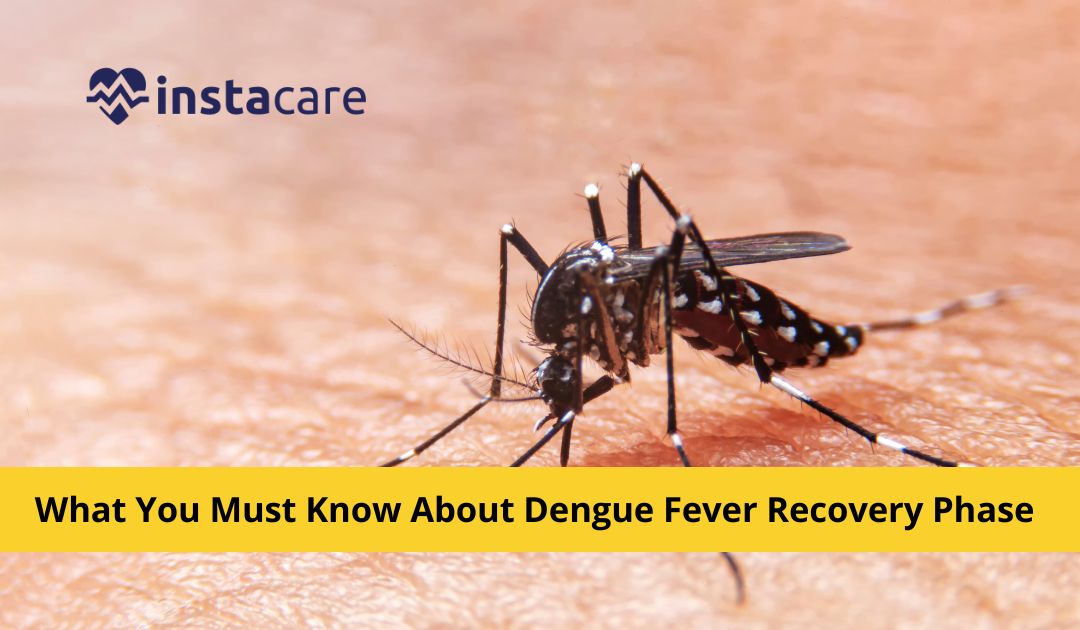Dengue fever, a relentless mosquito-borne viral infection, casts its shadow over millions worldwide annually. Amidst the urgency of prevention, delving into the intricacies of the recovery phase emerges as equally vital. Navigating the aftermath of dengue fever proves daunting, underscoring the need for awareness. Understanding what lies ahead becomes a beacon for patients and their families, illuminating the path to effective coping.
Within the confines of this comprehensive guide, we embark on an
exploration of the dengue fever recovery phase. Here, we unravel the
complexities, decoding symptoms, elucidating home care strategies, demystifying
medical treatments, and offering invaluable tips for a seamless recovery
journey. Join us on this enlightening odyssey, where knowledge becomes the
compass guiding us toward a healthier, resilient tomorrow.
Understanding the Dengue Fever Recovery Phase
In the aftermath of dengue fever, the recovery phase emerges as a
critical chapter in one's health journey. This period, often riddled with
uncertainties, demands careful attention and informed strategies. As we delve
deeper, we unravel the nuances of dengue fever recovery, shedding light on
essential aspects that pave the way for a smooth and complete recovery.
Duration of the Recovery Phase
- The recovery phase typically lasts 2 to 7 days after the acute
phase of the illness.
- Monitoring platelet count and overall health is essential during
this period.
Common Symptoms During Recovery
- Persistent fatigue and weakness
- Loss of appetite and nausea
- Skin rash and itching
- Muscle and joint pain
Home Care During Dengue Fever Recovery
In the aftermath of dengue fever, the recovery phase emerges as a
critical chapter in one's health journey. This period, often riddled with
uncertainties, demands careful attention and informed strategies. As we delve
deeper, we unravel the nuances of dengue fever recovery, shedding light on
essential aspects that pave the way for a smooth and complete recovery.
Adequate Rest
- Resting is crucial to allow the body to recover fully.
- Avoiding physical exertion helps prevent complications.
Hydration
- Drinking plenty of fluids, such as water, coconut water, and clear
soups, helps maintain hydration levels.
- Oral rehydration solutions can be beneficial, especially if there is vomiting or diarrhea.
Nutrition
- Consuming easily digestible foods like rice, bananas, and toast is
advisable.
- Avoiding spicy, oily, and heavy foods can prevent stomach discomfort.
Medical Treatment and Follow-up
Navigating the medical aspects of dengue fever recovery demands precision and expert guidance. Following the acute phase, tailored medical treatments and vigilant follow-ups are crucial. This section delves into the realm of medical interventions, providing insights into platelet monitoring, pain management, and the significance of regular consultations. Understanding these facets empowers patients, ensuring comprehensive care during their recovery journey.
Monitoring Platelet Count
- Regular blood tests are essential to monitor platelet levels.
- Platelet transfusion may be necessary if levels drop significantly.
Pain Management
- Over-the-counter pain relievers can help manage muscle and joint
pain.
- Consult a healthcare professional before taking any medications.
Medical Consultation
- Regular follow-up with a healthcare provider is crucial to track
the progress of recovery.
- Inform the doctor about any new or worsening symptoms.
Tips for a Smooth Recovery
Preventing Mosquito Bites
- Even during recovery, it’s important to avoid mosquito bites to prevent further infections.
- Use mosquito nets, and repellents, and wear long-sleeved clothing.
Emotional Support
- Emotional well-being is as important as physical health.
- Seek support from family, friends, or support groups if needed.
Gradual Return to Normal Activities
Reclaiming a sense of normalcy after dengue fever requires a balanced approach, acknowledging the body's need for both rest and gradual activity. Resuming regular activities post-recovery is a pivotal step but demands caution and mindfulness. In this section, we explore the art of a gradual return to normal activities, emphasizing patience and self-awareness to promote a sustainable and healthy recovery process.
- Resume regular activities gradually, starting with light exercises and increasing intensity over time.
- Listen to your body and rest if you feel fatigued.
Conclusion
Navigating the dengue fever recovery phase requires patience, proper care, and a positive mindset. By understanding the duration, symptoms, home care measures, medical treatment, and essential tips, individuals can ensure a smoother recovery process. Additionally, being aware of preventive measures can significantly reduce the risk of dengue fever recurrence. Remember, timely medical attention, rest, hydration, and emotional support are key factors in overcoming the challenges posed by the recovery phase. Stay informed, stay vigilant, and prioritize your health during this crucial period.


